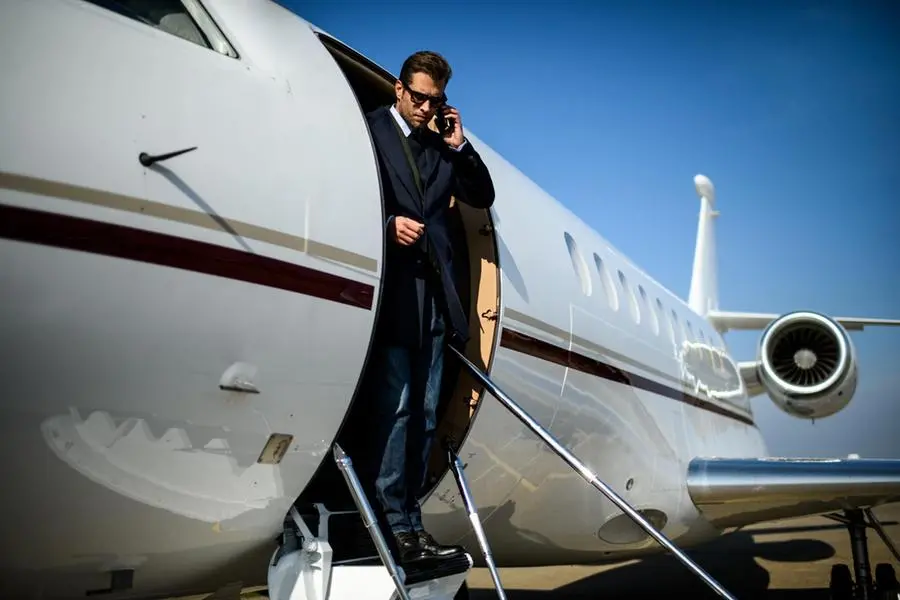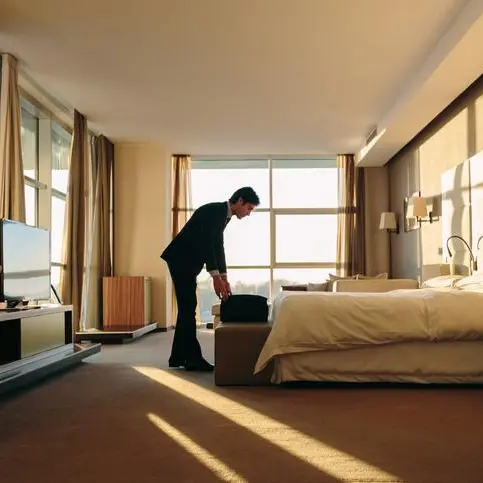PHOTO
The demand for business travel is back with a return to in-person and industry events, but corporate leaders now look for 'purposeful travel', says the new Business of Travel report from Accor.
Industry leaders feel business needs must be balanced with social and environmental considerations, the report said.
The report is based on Accor’s Masters of Travel advisory board meeting, which brought industry leaders from technology, law, energy, engineering, and pharmaceuticals to Brussels to create a vision for business travel and corporate meetings post-pandemic.
The delegates’ mission was to dig deep into the real value of travel, evaluating the demands it makes in environmental, social and governance (ESG) and what businesses need to prioritise in 2024 and beyond.
Accor research found that business travel spending is down just 24% from 2019 and is expected to return to pre-pandemic levels by 2024 (Deloitte).
About 57% of respondents expect an increase on travel budget in 2024 vs 2023 spend. The same corporates place ‘traveller experience’ as the second most crucial consideration in 2024, following cost-savings in order of prominence. And 46% of respondents confirmed they were not likely to limit business travel for the rest of the year.
Saskia Gentil, SVP Sales, Europe & North Africa at Accor, commented: “Masters of Travel gives us an in-depth look at the state of play for business travel today. With businesses trying to strike a balance between productivity and purpose, it’s a time of great change and revaluation for the industry. What’s clear is that after a period of inactivity, delegates are eager to get on the road again. Being mindful of value, sustainability and striking a balance of work and leisure that ensures the wellbeing of employees, businesses can uplift revenue and reinvigorate the art of face-to-face.”
The value of face-to-face is undeniable, with professionals estimating 25% more revenue when meeting in person. And the bottom line isn’t the only equation when workers need interaction with colleagues and associates for their mental health and job satisfaction. Every trip is carefully evaluated in terms of ROI and ROE – return on investment, and, increasingly, return on expectation - no return, no flight, the survey says.
Virtual meetings are an accepted part of the working landscape in ways that weren’t commonplace pre-Covid, but until the tech catches up and holograms can smile with feeling, deals are still being sealed with a handshake, it says.
Environmental concerns were front of mind for many. An Accor survey of corporate clients revealed that 54% put carbon emissions as their number one CSR priority, and “supplier sustainability performance for 2024 hotel sourcing and selection” was ranked as highly important in their booking decisions. The onus lies both on travellers and hosts, with both parties having to work together for more sustainable travel. More than 70% of Accor hotels have carbon measurement tools in place and delegates were happy to spend more per night for higher environmental credentials.
Combining meetings with purposeful leisure time means travellers are staying longer, doing more, and going down a gear to make the most of their carbon output. While still in its infancy, delegates clearly value ‘bleisure’, as do their employees.
Younger employees are more likely to combine business with pleasure via blended ‘bleisure’ trips, but the trend is increasingly prevalent across demographics. 67% of clients surveyed in an Accor poll extended their business trips in 2022. Travel bookers urge caution from an insurance standpoint, as partners and families are often not covered and grey areas exist when it comes to splitting invoices, dividing loyalty points and benefits.
The wellbeing of business travellers should be of utmost importance. “Consumers today understand that they need to own their health and immunity in a different way,” said Emlyn Brown, global senior vice president of well-being at Accor. “Our ability to deliver an authentic, holistic, and highly considered wellness offering is vital.” He added: “Four out of five of our guests, irrespective of age, demographics, or country, are taking a daily step to improve their well-being — so we need to meet and exceed that demand in all our brands no matter which one travellers are staying in.”
Masters of Travel delegates indicated loyalty programmes play a factor in enticing employees to travel for business too, with younger travellers seeking experiential rewards like concerts, drinks and even bicycle hire.
While tech is key to bookings across the board, technology must be people-centric, designed to improve the process and the human touch shouldn’t be far away, it says.
Sabine Toplak, VP Corporate & TMC Sales, Europe & North Africa at Accor, and Co-Host of Masters of Travel knows the world of corporate travel is changing quickly, and clients and hospitality businesses need to learn how to adapt.
“Insights gleaned will shape Accor’s thinking around travel, in order to fully understand what businesses are thinking so we can work collaboratively to create solutions to meet their objectives”.
Copyright 2022 Al Hilal Publishing and Marketing Group Provided by SyndiGate Media Inc. (Syndigate.info).





















